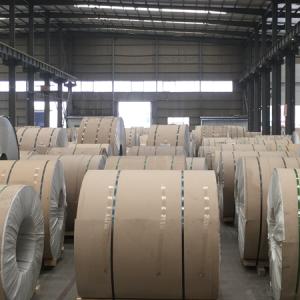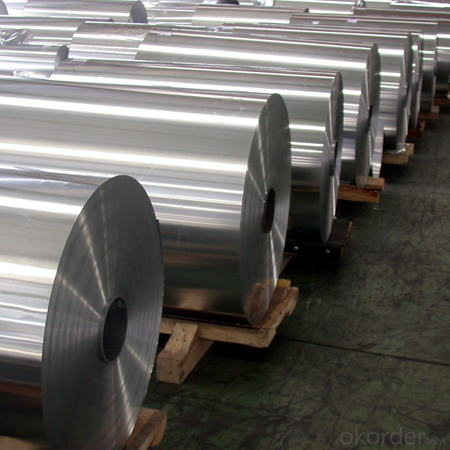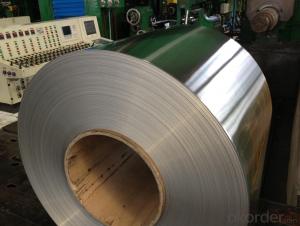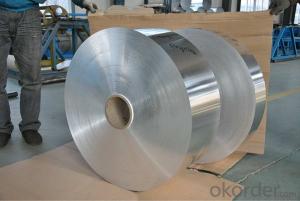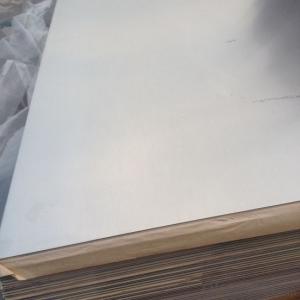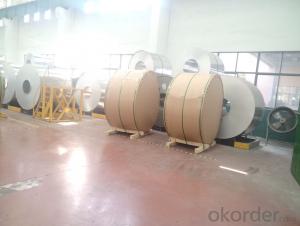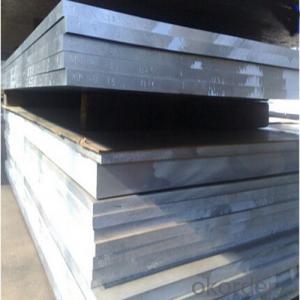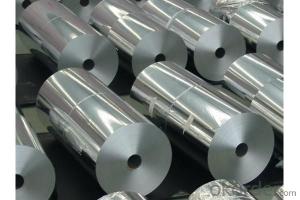5052 H32 Aluminum Coil - 5083 H321 Aluminium Alloy Plate for Marine Applications
- Loading Port:
- Shanghai
- Payment Terms:
- TT OR LC
- Min Order Qty:
- 5 m.t.
- Supply Capability:
- 6000 m.t./month
OKorder Service Pledge
Quality Product, Order Online Tracking, Timely Delivery
OKorder Financial Service
Credit Rating, Credit Services, Credit Purchasing
You Might Also Like
Specification
Grade:
1000 Series,3000 Series,5000 Series,7000 Series,2000 Series
Surface Treatment:
Coated,Embossed,Anodized,Polished,Mill Finish,Color Coated,Oxidized,Enameled Wire
Shape:
Angle,Square,Flat,Rectangular
Temper:
T3-T8,O-H112,Soft,Half Hard,Hard
Application:
Decorations,Door & Window,Transportation Tools,Glass Wall,Kitchen Use,Pharmaceutical
Technique:
DC/CC
Thickness:
0.05-4.0mm
Width:
200mm---980mm
Outer Diameter:
450-600
Net Weight (kg):
2.5 ton
Packaging:
Wooden pallets
5083 H321 Aluminium Alloy Plate for Marine
Packaging & Delivery
Product Specification | |
Grade | 1000 Series: 1050 1060 1100 3000 Series: 3003 3004 3105 5000 Series: 5052 5605,5083 6000 Series: 6061 6063 8000 Series: 8011 8021 8079 |
Thickness | 0.20-8.00mm |
Width | 2400mm max. |
Grade | 1000,3000,5000,6000,8000series |
Coil ID | 75mm, 150mm, 200mm, 300mm, 400mm, 508mm or negotiable |
Coil weight | 1000-5000kgs |
Coil OD | 1700mm max. |
Temper | O, H12, H14, H16, H111, H22 ,H24, H26, H28,T4, T6,etc. |
| Temper | |
| F | processing state |
| H | strain hardening state |
| O | annealing |
| T | heat treatment state |
| H112 | pure state of strain hardening, adjustment has been made to degree of strain hardening and annealing |
| T4 | solid solution treatment and natural efficiency to achieve sufficient stability condition |
| T5 | artificial aging condition of the reentry after high temperature thermal cooling |
| T6 | artificial aging state after solid solution treatment |
Chemical Composition | |||||||||
| Grade | Si | Fe | Cu | Mn | Mg | Cr | Ni | Zn | Al |
| 1050 | 0.25 | 0.4 | 0.05 | 0.05 | 0.05 | - | - | 0.05 | 99.5 |
| 1060 | 0.25 | 0.35 | 0.05 | 0.03 | 0.03 | - | - | 0.05 | 99.6 |
| 1070 | 0.2 | 0.25 | 0.04 | 0.03 | 0.03 | - | - | 0.04 | 99.7 |
| 1100 | Si+Fe:0.95 | 0.05-0.2 | 0.05 | - | - | 0.1 | - | 99 | |
| 1200 | Si+Fe:1.00 | 0.05 | 0.05 | - | - | 0.1 | 0.05 | 99 | |
| 1235 | Si+Fe:0.65 | 0.05 | 0.05 | 0.05 | - | 0.1 | 0.06 | 99.35 | |
| 3003 | 0.6 | 0.7 | 0.05-0.2 | 1.0-1.5 | - | - | - | 0.1 | remains |
| 3004 | 0.3 | 0.7 | 0.25 | 1.0-1.5 | 0.8-1.3 | - | - | 0.25 | remains |
| 3005 | 0.6 | 0.7 | 0.25 | 1.0-1.5 | 0.20-0.6 | 0.1 | - | 0.25 | remains |
| 3105 | 0.6 | 0.7 | 0.3 | 0.30-0.8 | 0.20-0.8 | 0.2 | - | 0.4 | remains |
| 3A21 | 0.6 | 0.7 | 0.2 | 1.0-1.6 | 0.05 | - | - | 0.1 | remains |
| 5005 | 0.3 | 0.7 | 0.2 | 0.2 | 0.50-1.1 | 0.1 | - | 0.25 | remains |
| 5052 | 0.25 | 0.4 | 0.1 | 0.1 | 2.2-2.8 | 0.15-0.35 | - | 0.1 | remains |
| 5083 | 0.4 | 0.4 | 0.1 | 0.40-1.0 | 4.0-4.9 | 0.05-0.25 | - | 0.25 | remains |
| 5154 | 0.25 | 0.4 | 0.1 | 0.1 | 3.1-3.9 | 0.15-0.35 | - | 0.2 | remains |
| 5182 | 0.2 | 0.35 | 0.15 | 0.20-0.50 | 4.0-5.0 | 0.1 | - | 0.25 | remains |
| 5251 | 0.4 | 0.5 | 0.15 | 0.1-0.5 | 1.7-2.4 | 0.15 | - | 0.15 | remains |
| 5754 | 0.4 | 0.4 | 0.1 | 0.5 | 2.6-3.6 | 0.3 | - | 0.2 | remains |
| 6061 | 0.40-0.8 | 0.7 | 0.15-0.40 | 0.15 | 0.8-1.2 | 0.04-0.35 | - | 0.25 | remains |
| 6063 | 0.20-0.6 | 0.35 | 0.1 | 0.1 | 0.45-0.9 | 0.1 | - | 0.1 | remains |
| 6082 | 0.7-1.3 | 0.5 | 0.1 | 0.40-1.0 | 0.6-1.2 | 0.25 | - | 0.2 | remains |
| 6A02 | 0.50-1.2 | 0.5 | 0.20-0.6 | Or Cr0.15-0.35 | 0.45-0.9 | - | - | 0.2 | remains |
| 8011 | 0.50-0.9 | 0.6-1.0 | 0.1 | 0.2 | 0.05 | 0.05 | - | 0.1 | remains |
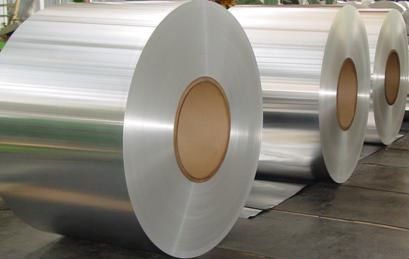
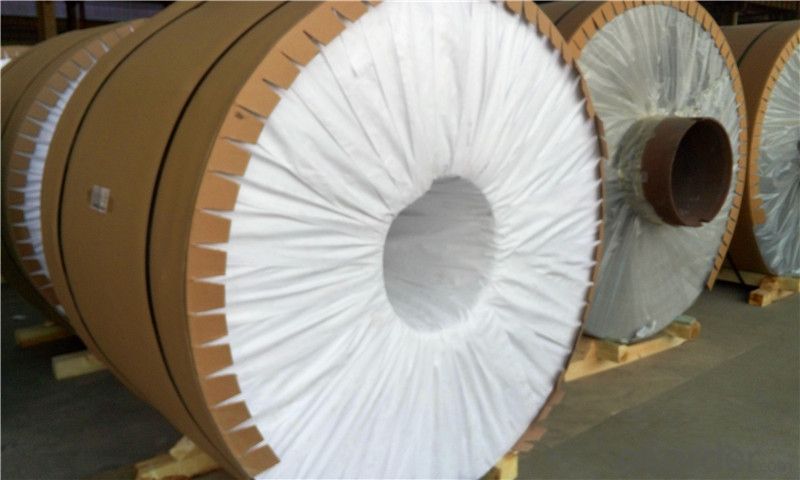
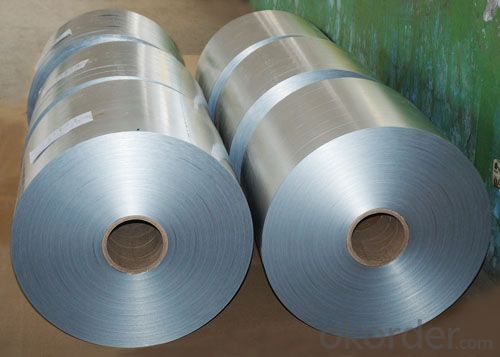
- Q: i need to know if Aluminum absorbs radio waves (just the type that control an RC jet)
- Aluminum reflects radio waves; it does not absorb them.
- Q: How do aluminum coils contribute to noise isolation?
- Aluminum coils can contribute to noise isolation in several ways. Firstly, the use of aluminum as a material for coils provides excellent thermal and electrical conductivity, which helps to dissipate heat and electromagnetic interference. This reduces the chances of noise generated by these factors. Additionally, aluminum coils can be designed with specific properties that enhance noise isolation. By using thicker aluminum wire, the coil can have a higher resistance, reducing the transmission of electrical noise. Furthermore, the shape and size of the coil can be optimized to minimize vibrations and resonance, which are common sources of noise. Furthermore, aluminum coils can be used in conjunction with other noise isolating materials. For example, they can be combined with acoustic foam or other sound-absorbing materials, creating a barrier that prevents sound transmission. The aluminum coil acts as a structural support while the additional materials absorb and dampen sound waves, further enhancing noise isolation. Overall, aluminum coils contribute to noise isolation by dissipating heat and electromagnetic interference, minimizing vibrations and resonance, and providing a structural support for other noise isolating materials.
- Q: Cost of aluminium coil coating fluorocarbon paint?
- Hello, fluorocarbon paint according to the use of distinction: external wall fluorocarbon paint, aluminum, fluorocarbon paint, metal fluorocarbon paint, steel, fluorocarbon paint. According to industry standards to distinguish: GB products, non GB products.
- Q: Can aluminum coils be used in electrical conductors?
- Yes, aluminum coils can be used in electrical conductors. Aluminum is a highly conductive metal, second only to copper in terms of electrical conductivity. It possesses excellent electrical properties, making it suitable for use in various electrical applications, including the production of coils. Aluminum coils are commonly used in electrical conductors for applications such as transformers, motors, generators, and power transmission lines. They are lightweight, cost-effective, and offer good thermal conductivity. However, it is important to note that aluminum has a lower tensile strength compared to copper, so proper design considerations must be taken into account to ensure the coil's stability and durability. Additionally, aluminum coils may require larger cross-sectional areas compared to copper coils to achieve the same electrical performance.
- Q: Are aluminum coils available in custom sizes?
- Yes, aluminum coils are available in custom sizes.
- Q: This question asks for a comparison between aluminum coil and other types of wire, highlighting their differences.
- <p>Aluminum coil is a type of wire made from aluminum, known for its lightweight, high conductivity, and corrosion resistance. It's commonly used in electrical applications, construction, and packaging. Other types of wire, such as copper wire, have different properties. Copper, for instance, has higher conductivity than aluminum but is heavier and more expensive. Steel wire is stronger and more durable but less conductive and prone to rust. The choice between aluminum coil and other wires depends on the specific requirements of strength, conductivity, cost, and environmental resistance for the application in question.</p>
- Q: Can aluminum coils be used for electromagnetic shielding?
- Yes, aluminum coils can be used for electromagnetic shielding. Aluminum is a highly conductive material, which makes it effective at blocking or redirecting electromagnetic fields. When coils made of aluminum are used in electromagnetic shielding, they can help prevent the transmission of electromagnetic radiation by reflecting or absorbing it. This shielding property is particularly useful in applications where electromagnetic interference needs to be minimized, such as in electronic devices, communication systems, or sensitive equipment. Additionally, aluminum coils are lightweight and have good mechanical properties, making them a practical choice for electromagnetic shielding.
- Q: This question asks for guidelines on safely transporting aluminum coils, which are large and heavy metal rolls used in various industries.
- <p>To transport aluminum coils safely, follow these steps: Use specialized vehicles with proper securing mechanisms to handle the weight and prevent rolling. Ensure the coils are balanced and secured with straps or chains to avoid shifting during transit. Maintain a steady speed to minimize vibrations that could cause damage. Avoid sudden stops or sharp turns. Keep the load covered to protect from moisture and dirt. Adhere to all legal weight and dimension limits for your route. Regularly inspect the vehicle and load for any signs of damage or instability. Always follow local transportation regulations and safety guidelines.</p>
- Q: Inquiry about the feasibility of using a laser for cutting aluminum coils.
- <p>Yes, you can use a laser to cut aluminum coils. Laser cutting is a versatile process that can be used on a variety of materials, including aluminum. However, it's important to note that the type of laser and the specific settings should be appropriate for aluminum. Fiber lasers or CO2 lasers are commonly used for metal cutting, including aluminum. The process requires careful control of the laser's power, speed, and focus to achieve clean and precise cuts. Additionally, because aluminum is a reflective metal, special considerations such as the use of a protective cover gas and proper nozzle management are necessary to prevent damage to the laser equipment and to ensure the quality of the cut.</p>
- Q: Are aluminum coils suitable for high-temperature applications?
- Aluminum coils are generally not suitable for high-temperature applications. While aluminum has many beneficial properties such as lightweight and corrosion resistance, it has a relatively low melting point of around 660 degrees Celsius (1220 degrees Fahrenheit). This means that aluminum coils may not be able to withstand the extreme heat typically associated with high-temperature applications. In high-temperature environments, materials with higher melting points such as stainless steel or nickel alloys are often preferred. These materials can withstand higher temperatures without losing their structural integrity or experiencing significant deformation. However, it is worth noting that there are certain aluminum alloys that have been developed to have improved high-temperature properties. These alloys typically contain elements such as copper, magnesium, or zinc, which enhance their strength and heat resistance. These specialized aluminum alloys may be suitable for specific high-temperature applications where their unique properties are required. In conclusion, while standard aluminum coils may not be suitable for high-temperature applications, there are specialized aluminum alloys available that can provide better performance in elevated temperature environments. It is important to consider the specific temperature requirements and consult with experts to determine the most suitable material for a particular high-temperature application.
Send your message to us
5052 H32 Aluminum Coil - 5083 H321 Aluminium Alloy Plate for Marine Applications
- Loading Port:
- Shanghai
- Payment Terms:
- TT OR LC
- Min Order Qty:
- 5 m.t.
- Supply Capability:
- 6000 m.t./month
OKorder Service Pledge
Quality Product, Order Online Tracking, Timely Delivery
OKorder Financial Service
Credit Rating, Credit Services, Credit Purchasing
Similar products
Hot products
Hot Searches
Related keywords
